The dyu c6 vs fiido d21 debate presents a real challenge for electric bike enthusiasts to determine the better value option. DYU has earned its reputation by consistently delivering quality electric bikes. Fiido has also established itself in the e-bike market with impressive specifications.
These e-bikes have some distinct differences in their specifications. The dyu c6 comes with impressive capabilities, and the fiido d21 responds with an extended range of up to 100 km per charge. DYU models typically provide around 60 km of range. Both bikes share similar battery voltages but differ substantially in their motor power. Some DYU models pack up to 500W of power, while the Fiido D21 runs on a 250W motor.
In this piece, we’ll get into everything from design elements to motor performance and overall value. The Fiido D21 stands out with its maximum range, but the DYU ended up being a better overall value for many riders. We’ll explore all the significant factors that will help you pick the right e-bike for your garage.
Design and Build Quality

The practical value of an e-bike depends on its physical characteristics. Let’s look at the notable differences between the DYU C6 and Fiido D21’s construction and design philosophy.
Frame Material: Steel vs Aluminum Alloy
Both e-bikes use aluminum alloy frames but with different approaches. The DYU C6 features an optimized aluminum alloy frame that delivers excellent durability without extra weight. The Fiido D21 takes a different path with aerospace-grade aluminum alloy and custom magnesium alloy forks that aim for extreme lightness. The DYU C6’s frame proves sturdier for everyday use, even with Fiido’s premium materials.
Weight Comparison: 27kg vs 17.5kg
These models show a big difference in their weights. The DYU C6 , which is nowhere near the Fiido D21’s light 17.5kg. All the same, the C6’s extra weight helps it stay stable on the road, particularly in bad weather.
Foldability: Non-foldable vs Fully Foldable
The Fiido D21 stands out with its portability. You can fold it in just two steps and fit it easily in elevators, subways, or car trunks. The DYU C6 doesn’t fold, which limits storage options but makes it more structurally sound for daily commutes.
Esthetic Features: Basket and Step-through vs Minimalist Design
The DYU C6 shines with practical features. Its front basket and rear rack make daily errands a breeze. The step-through frame welcomes riders between 157-193cm, and you can hop on easily whatever you’re wearing or how mobile you are.
The Fiido D21 welcomes a minimalist approach with its integrated seatpost that houses both battery and taillight. This sleek design cuts down on components but gives up the practical storage options you get with the DYU.
The DYU C6 puts functionality and comfort first for urban use, while the Fiido D21 focuses on portability and esthetic minimalism. Each bike shows a unique view of urban mobility.
Motor and Battery Performance

Power systems determine how electric bikes perform in daily use. The dyu c6 vs fiido d21 comparison shows key differences in how these models manage their energy storage and use.
Battery Capacity: vs 36V 11.6Ah36V 12.5Ah
The DYU C6’s battery is slightly larger at 36V 12.5Ah (450Wh) than the Fiido D21’s 36V 11.6Ah (417.6Wh). This 7.7% extra capacity gives the DYU better power reserves to work with. Both bikes let you remove their batteries, and the DYU’s larger capacity gives you more power for your money.
Range (Throttle Mode): 60km vs 100km
The Fiido D21 looks better on paper with its compared to the DYU C6’s 60km. Real-life testing paints a different picture. The Fiido D21 reliably covers about 60km with pedal assist and 40km using throttle alone. The C6 ranks in the top 20% of its class for range-to-price ratio, making it a smart choice for budget-conscious riders.
Charging Time: 6 hours vs 7 hours
You can fully charge the DYU C6 in about 6 hours, while the Fiido D21 takes 7 hours. This hour’s difference adds up quickly if you charge your bike daily. The DYU’s faster charging and efficient power use make it more practical for everyday riding.
The Fiido D21 may claim a longer range on paper, but the DYU C6 performs better in practice. Its faster charging time, bigger battery, and great value make it stand out. Riders who need reliable daily transport will find the DYU C6 a better fit than the Fiido D21.
Ride Comfort and Features

The riding experience substantially influences how satisfied you’ll be with an e-bike, beyond just looking at specifications. Let’s examine the comfort differences between the dyu c6 vs fiido d21.
Suspension System: Front Suspension vs None
The DYU C6’s makes a real difference by absorbing road vibrations effectively. Riders experience less wrist and arm fatigue, which becomes especially valuable when riding on European cities’ cobblestone streets. The Fiido D21 comes without any suspension system, and this makes bumpy roads harder to handle during longer rides.front suspension fork
Torque Sensor vs Cadence Sensor
These bikes stand out by using torque sensors instead of simple cadence sensors. Unlike cadence sensors that only detect pedaling motion, torque sensors measure how much force you apply and adjust the motor’s help accordingly. This creates a more user-friendly riding experience – you get more power when you pedal harder and less when you ease up. The battery life tends to last longer with torque sensors since they provide power only at the time it’s needed.
Gear System: Single-Speed vs Multi-Gear
The DYU C6 shines with its that helps riders adapt to different road conditions. This setup is a great way to get through hills or navigate European city streets. The Fiido D21’s gear setup isn’t clearly documented across sources, though it seems to use a single-speed configuration with an optimized gear ratio.
Pricing and Overall Value

The practical value of an e-bike depends on its cost more than its performance specs.
Retail Price: €700 vs €1299
These models show a big price gap. The DYU C6 , which makes it much cheaper than the Fiido D21 at €1299. The €599 difference means you’ll pay 86% more for the Fiido model. This is a big deal for buyers watching their budget.
Included Accessories: Basket, Rear Rack vs None
The DYU C6 stands out here with its standard front basket and rear rack that can hold 25 kg (55 lbs). These built-in features save you money on extra purchases. The Fiido D21’s lack of accessories means you’ll need to spend more for storage options.
Maintenance and Durability Considerations
The DYU C6 wins on long-term costs too. Both bikes need . The DYU’s charging time (6 hours vs 7 hours) helps cut down electricity costs. Both models need similar upkeep, with yearly maintenance running €200-300.battery replacement, typically costing €500-800
The DYU C6 gives you the better deal when you add up everything – purchase price, accessories, and maintenance. You get 90% of the Fiido’s features at almost half the cost.
Comparison Table
| Feature Category | DYU C6 | Fiido D21 |
| Design & Build | ||
| Frame Material | Aluminum alloy | Aerospace-grade aluminum alloy with magnesium alloy forks |
| Weight | 27 kg | 17.5 kg |
| Foldability | Non-foldable | Fully foldable |
| Height Range | 157-193 cm | Not mentioned |
| Performance | ||
| Battery Capacity | 36V 12.5Ah (450Wh) | 36V 11.6Ah (417.6Wh) |
| Range | 60 km | 100 km |
| Motor Power | 250W | 250W |
| Charging Time | 6 hours | 7 hours |
| Features | ||
| Suspension | Front suspension fork | None |
| Gear System | 3-speed | Single-speed |
| Sensor Type | Torque sensor | Torque sensor |
| Storage Options | Front basket and rear rack included | None included |
| Value | ||
| Price | €700 | €1,299 |
| Included Accessories | Front basket, rear rack (25 kg capacity) | None |
| Annual Maintenance Cost | €200-300 | €200-300 |
Conclusion

A deep look at the DYU C6 and Fiido D21 reveals some big differences that affect their value. The price jumps out right away—you can get the DYU C6 for . That’s almost €600 you could save. Such a big price difference should mean the Fiido performs way better, but our analysis shows a different story.
The DYU C6 isn’t perfect. At 27kg, it weighs quite a bit more than the Fiido’s light 17.5kg frame. You also can’t fold it like the D21, which limits your storage options. The range comes in lower too – 60km compared to Fiido’s claimed 100km.
The DYU C6 shines where it counts for daily city rides in Europe. It comes ready to use with a front basket and rear rack built-in. The front suspension really helps smooth out those bumpy cobblestone streets you find all over European cities. The bike feels complete right out of the box.
The battery story gets interesting too. The DYU’s slightly bigger capacity (450Wh vs 417.6Wh) might not seem like much, but it charges faster (6 hours vs 7 hours). This adds up when you use it daily. The 3-speed gear system helps a lot with different terrains, unlike the Fiido’s single-speed setup.
The DYU C6 gives you about 90% of what the Fiido D21 offers at half the price. The Fiido D21 is still an excellent e-bike if you need something portable with longer range. Most riders will find the DYU C6 gives them better value for their money. Unless you really need that extra portability or maximum range, the DYU C6 makes more sense for getting around European cities.
FAQs
Q1. How do the DYU C6 and Fiido D21 compare in terms of range?
The DYU C6 offers a range of about 60km, while the Fiido D21 claims a longer range of up to 100km. However, real-world testing shows the DYU C6 consistently delivers around 44.4km in pedal assist mode, which is quite efficient for its price point.
Q2. Which e-bike is more suitable for urban commuting?
The DYU C6 is generally more suitable for urban commuting due to its front suspension, included storage options (front basket and rear rack), and 3-speed gear system. These features make it more adaptable to varied urban terrain and practical for carrying essentials.
Q3. How do the prices of the DYU C6 and Fiido D21 compare?
The DYU C6 is significantly more affordable, retailing at around €700, while the Fiido D21 costs approximately €1299. This substantial price difference of €599 makes the DYU C6 a more budget-friendly option.
Q4. What are the main differences in design between the two e-bikes?
The DYU C6 is non-foldable and heavier at 27kg, but includes practical features like a front basket and rear rack. The Fiido D21 is fully foldable and lighter at 17.5kg, with a minimalist design. The C6 has a step-through frame, while the D21 focuses on portability.
Q5. How do the charging times and battery capacities compare?
The DYU C6 has a slightly larger battery capacity (36V 12.5Ah) and charges faster in about 6 hours. The Fiido D21 has a 36V 11.6Ah battery and takes around 7 hours to charge. The C6’s quicker charging time can be more convenient for daily use.

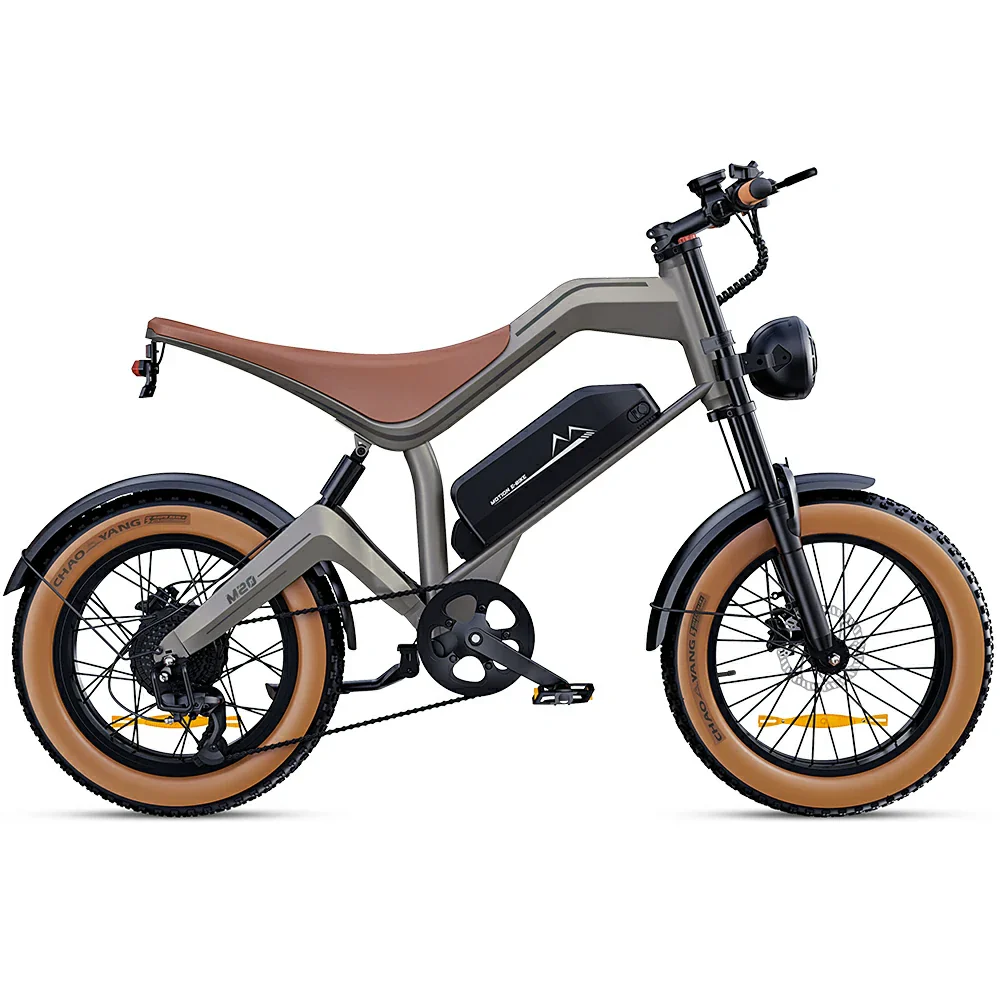
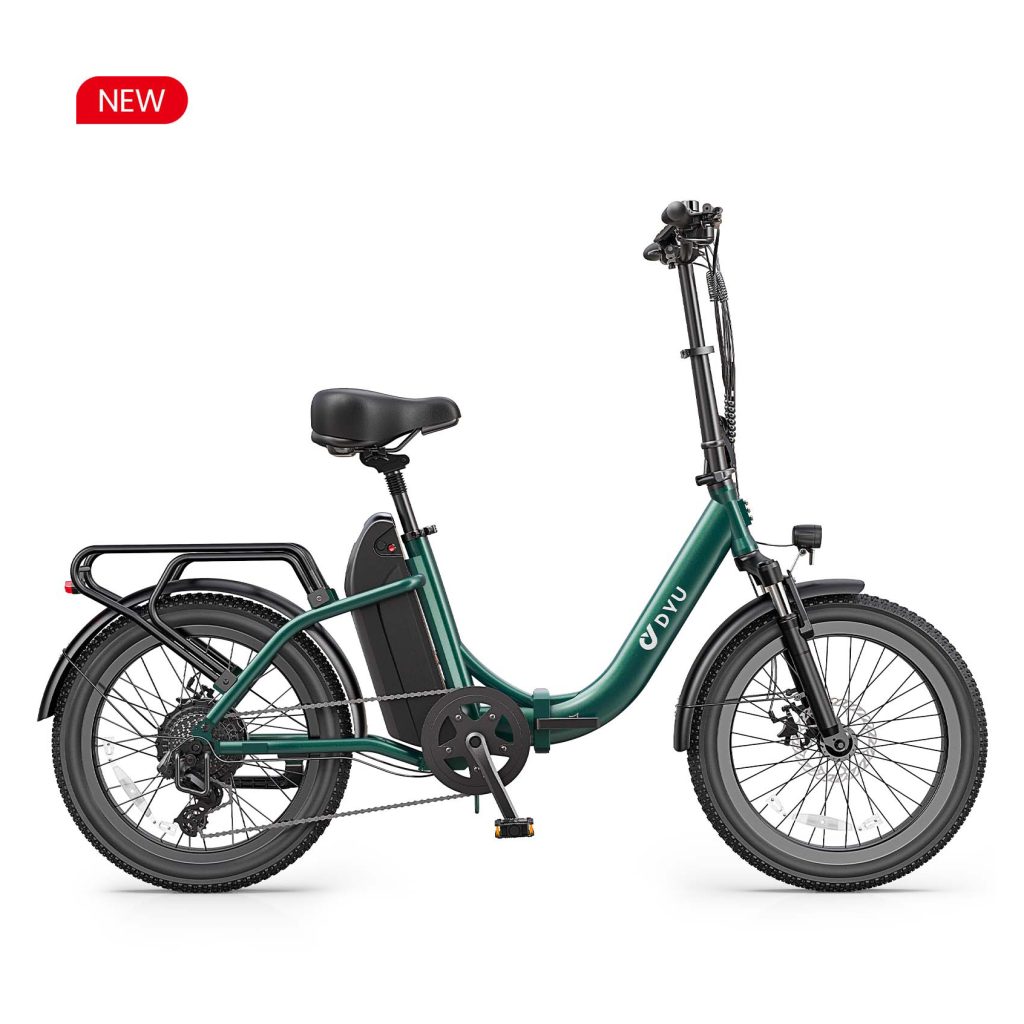
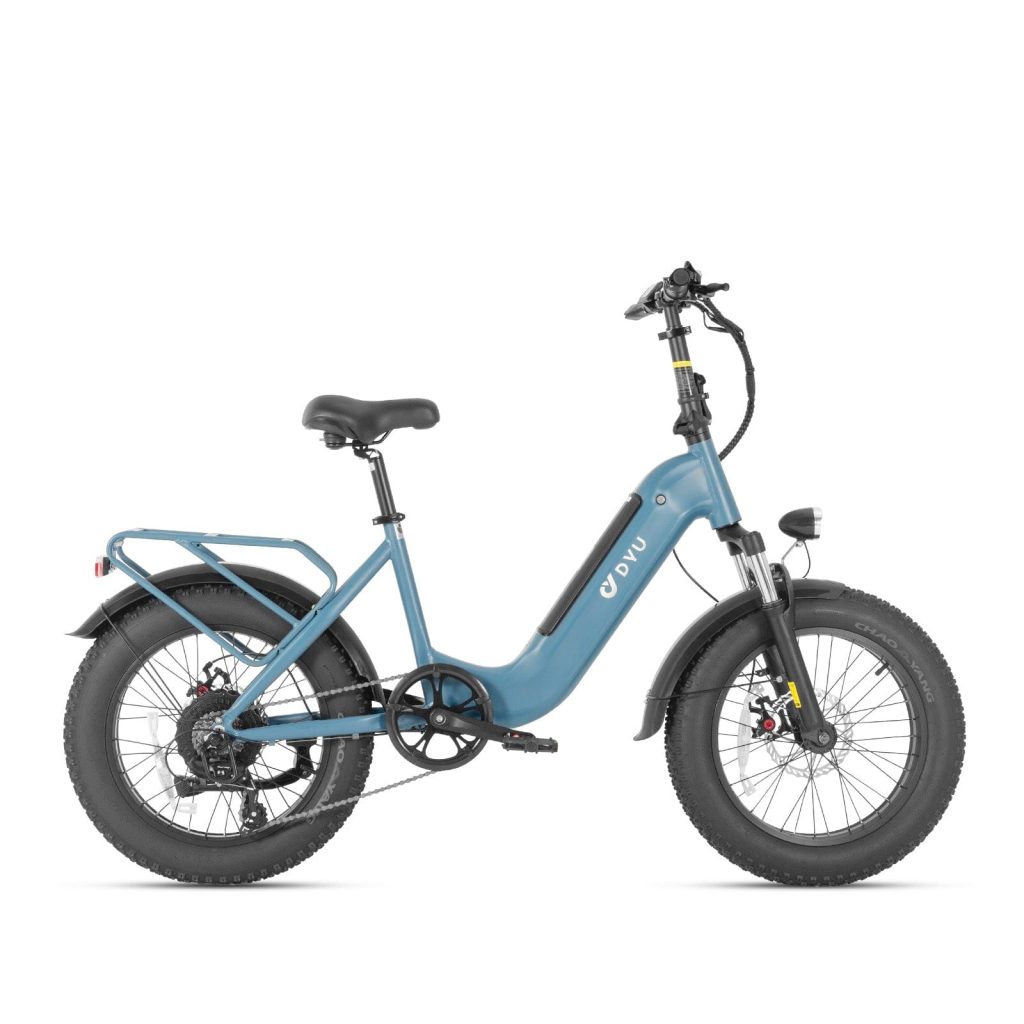
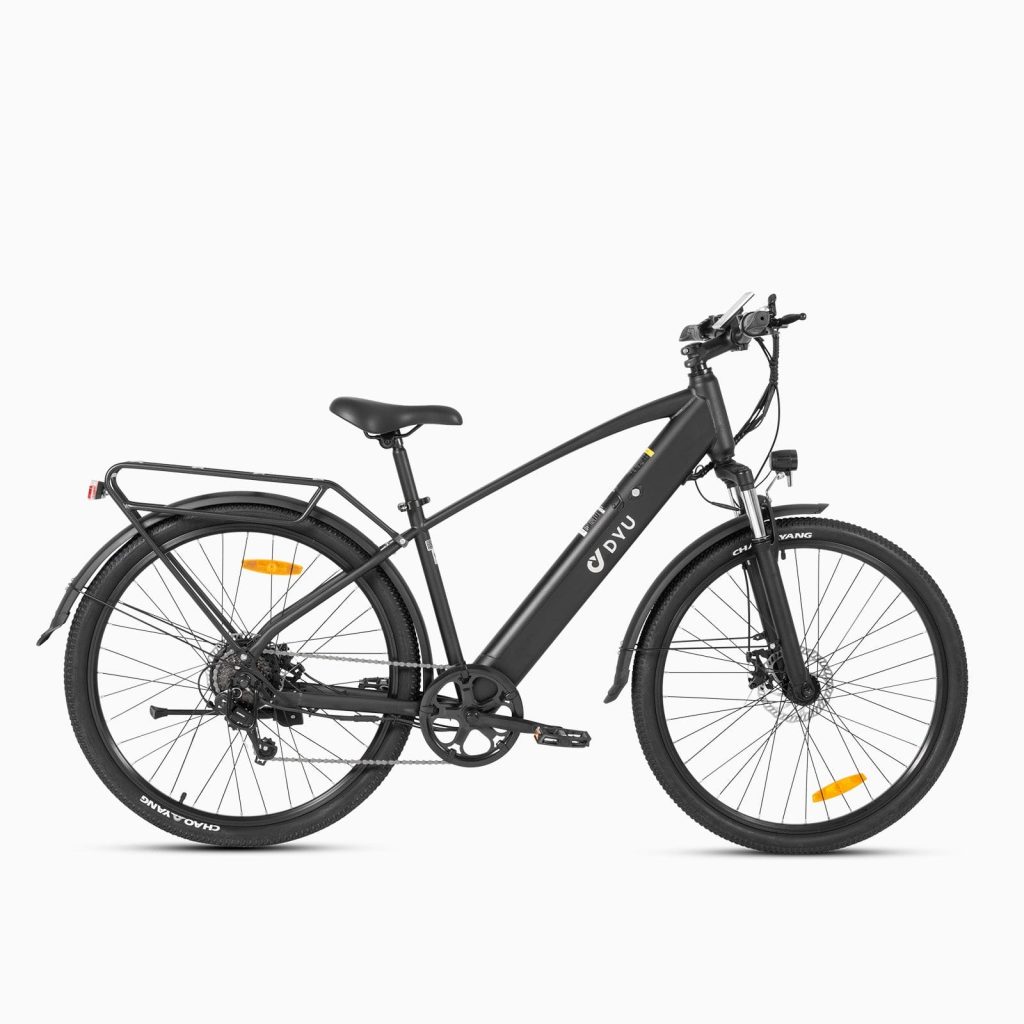
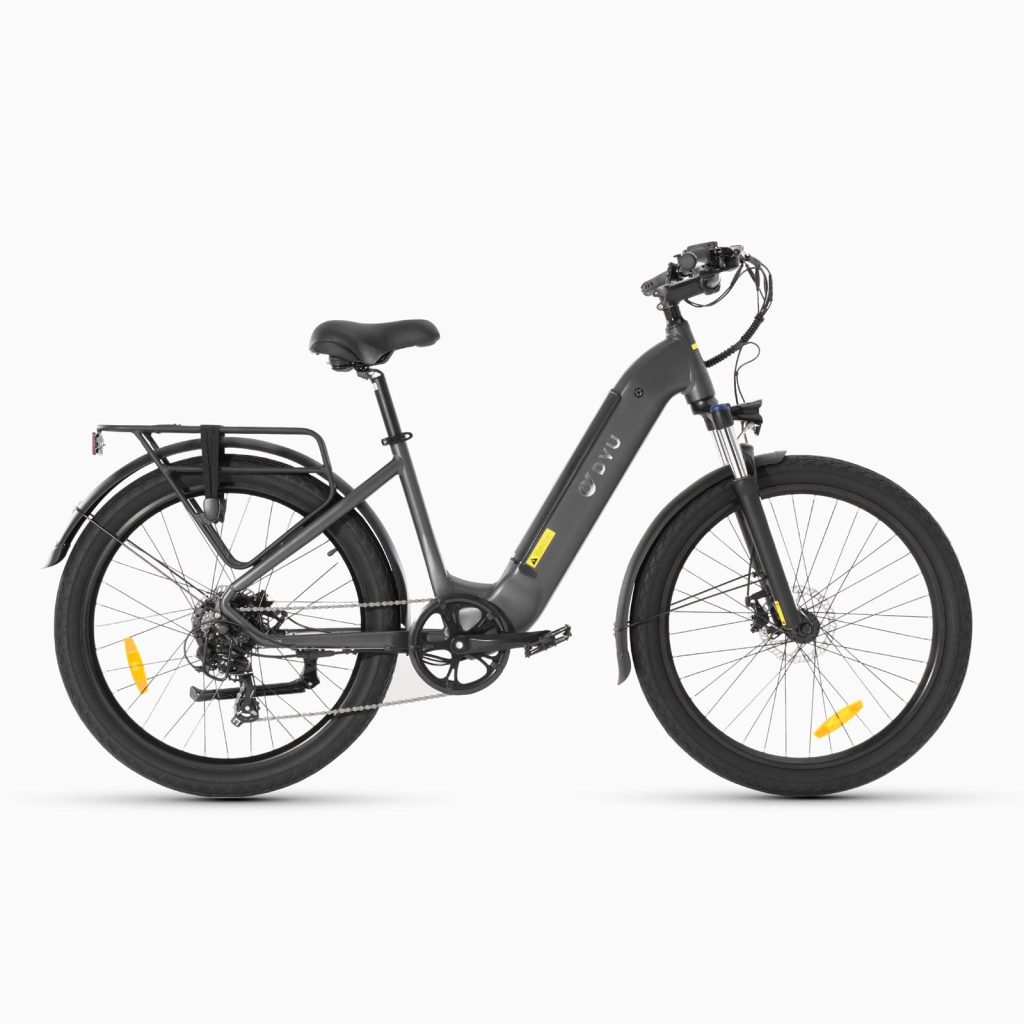
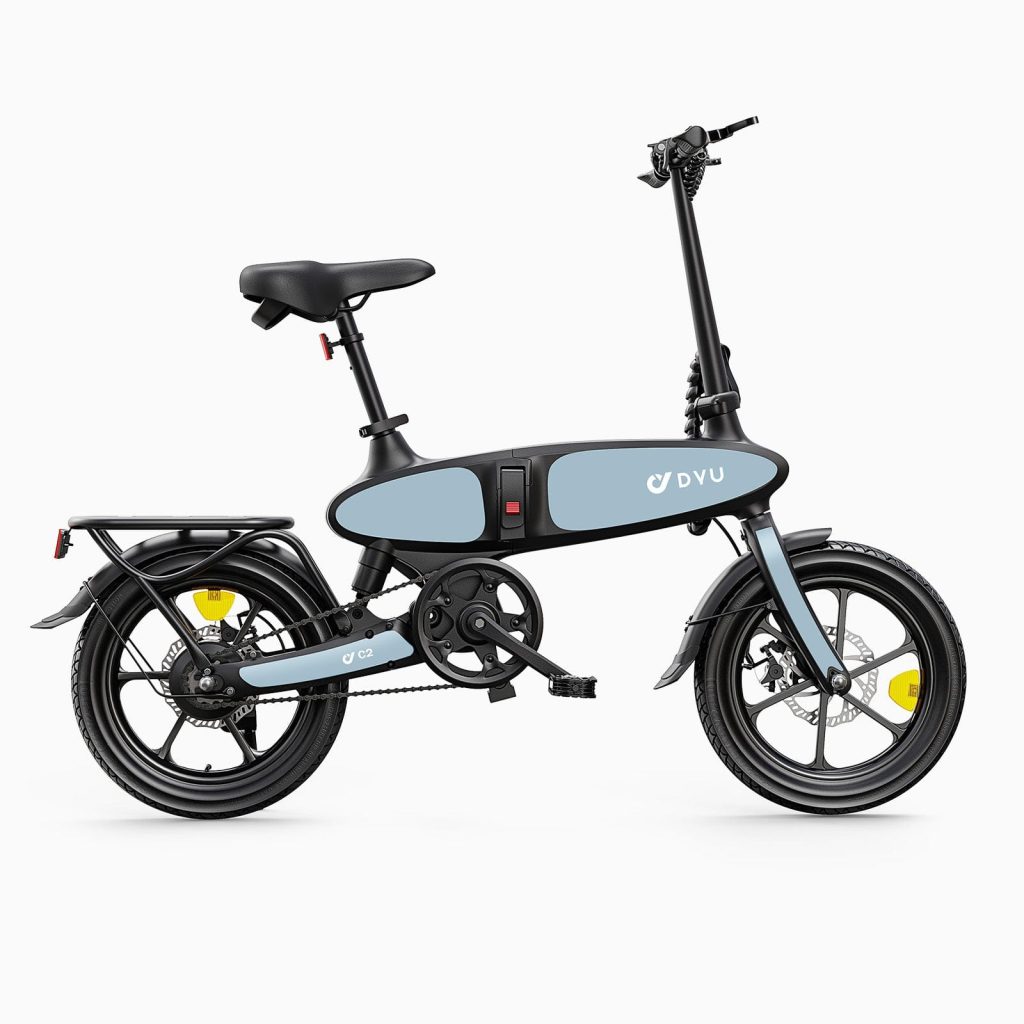
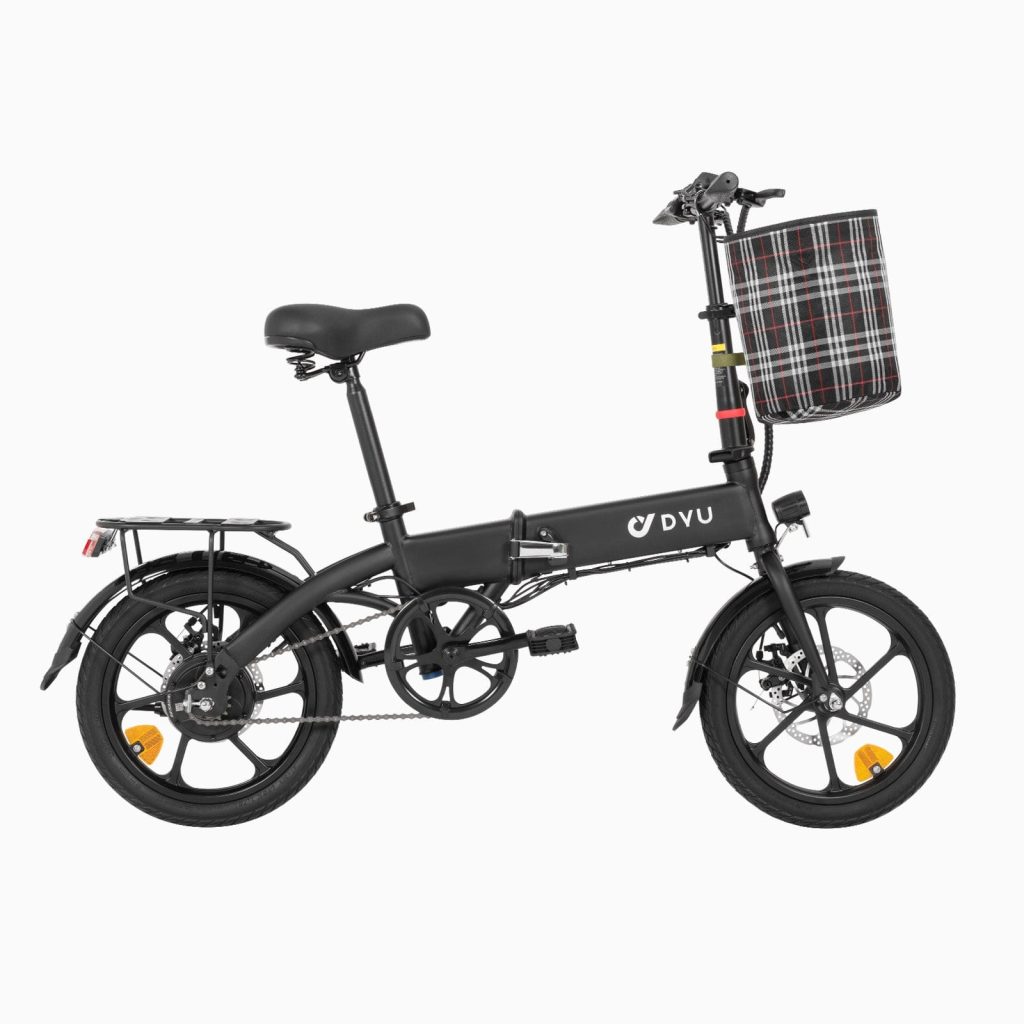
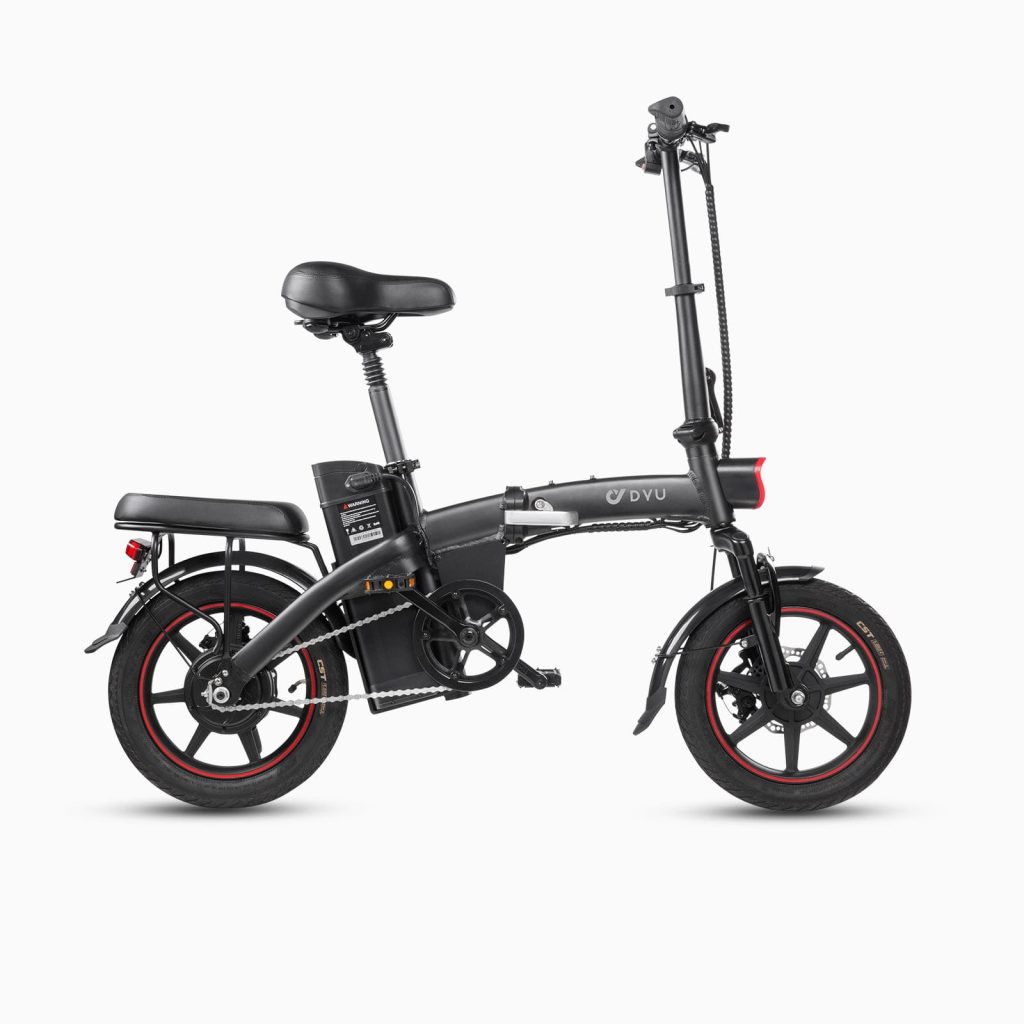

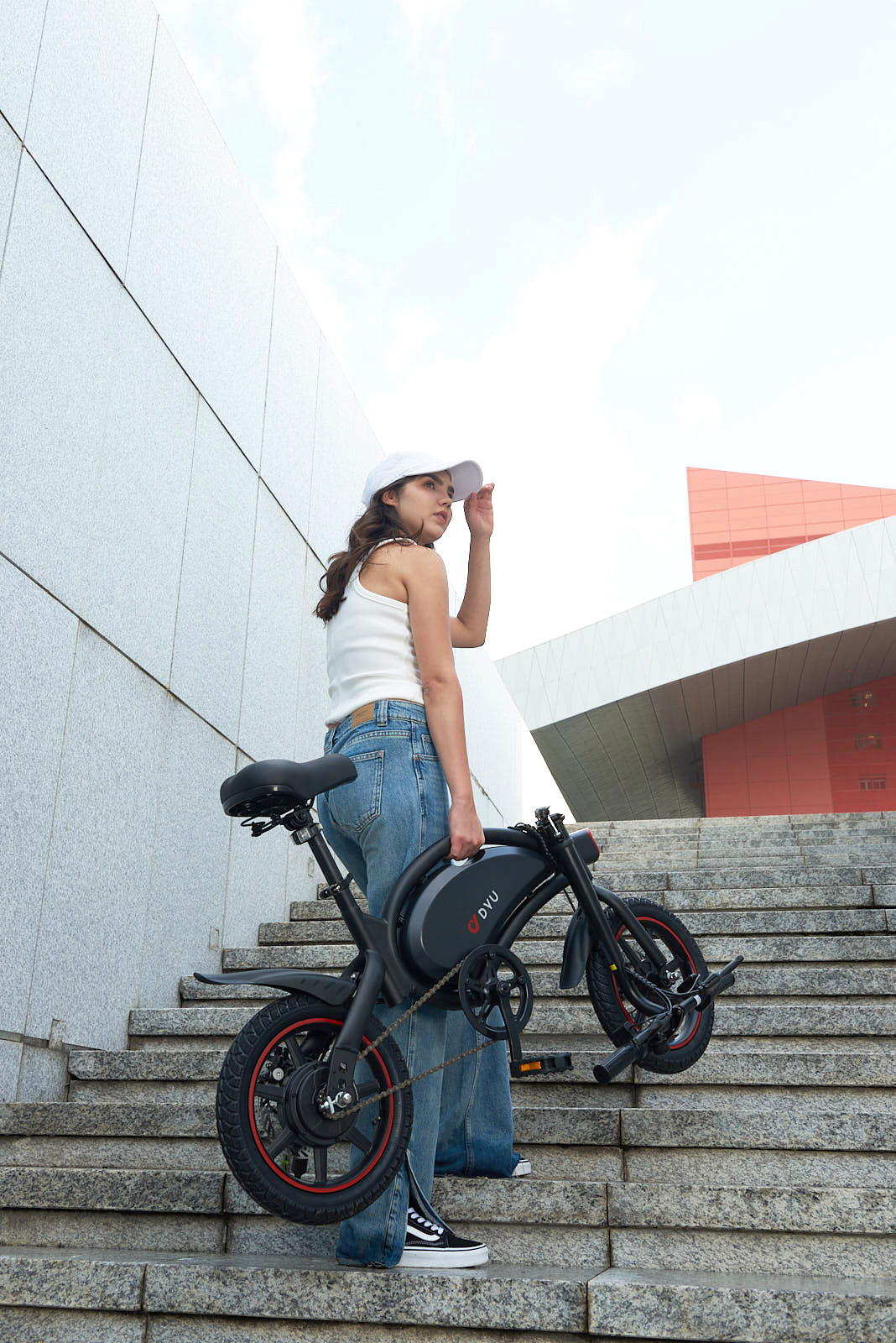
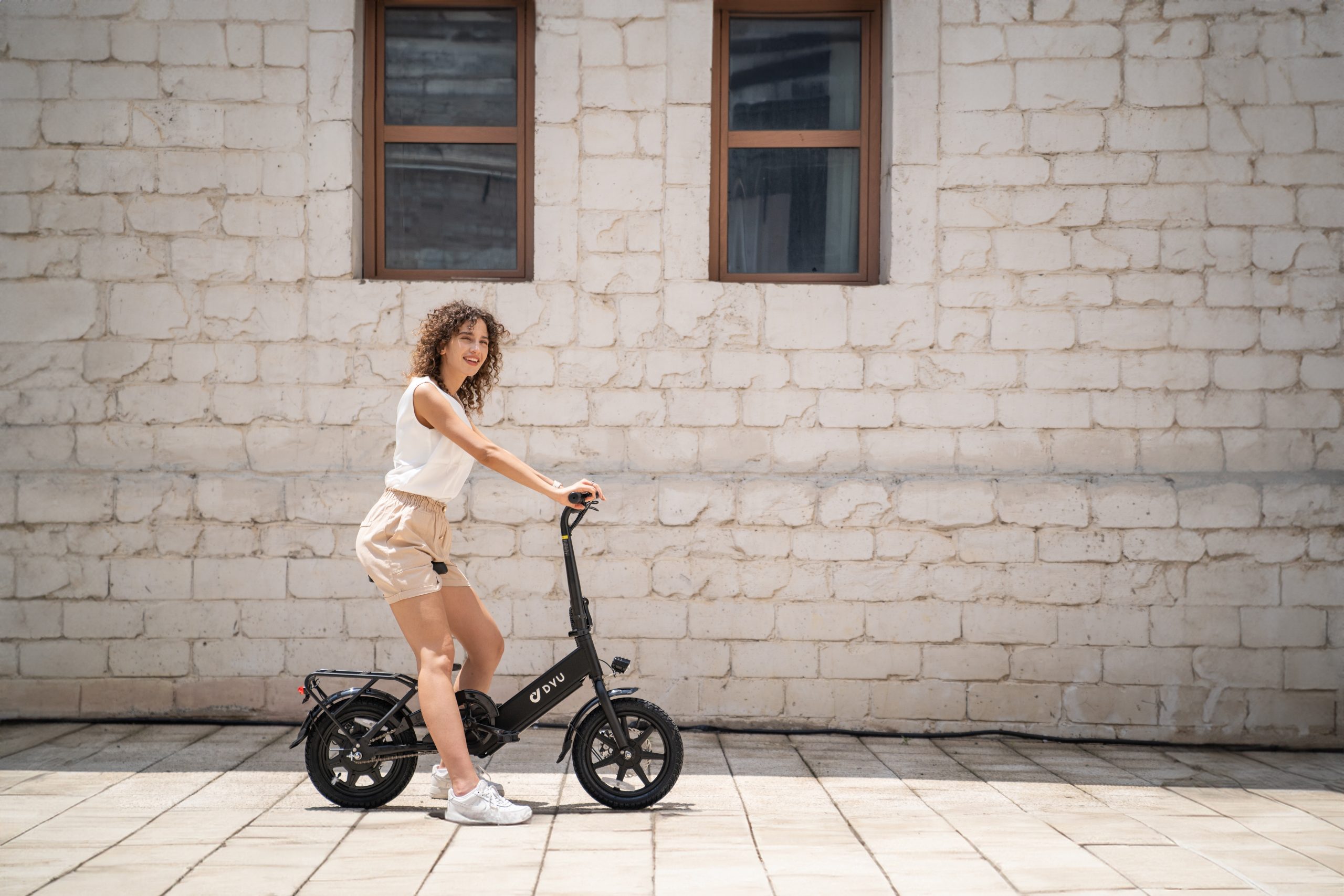
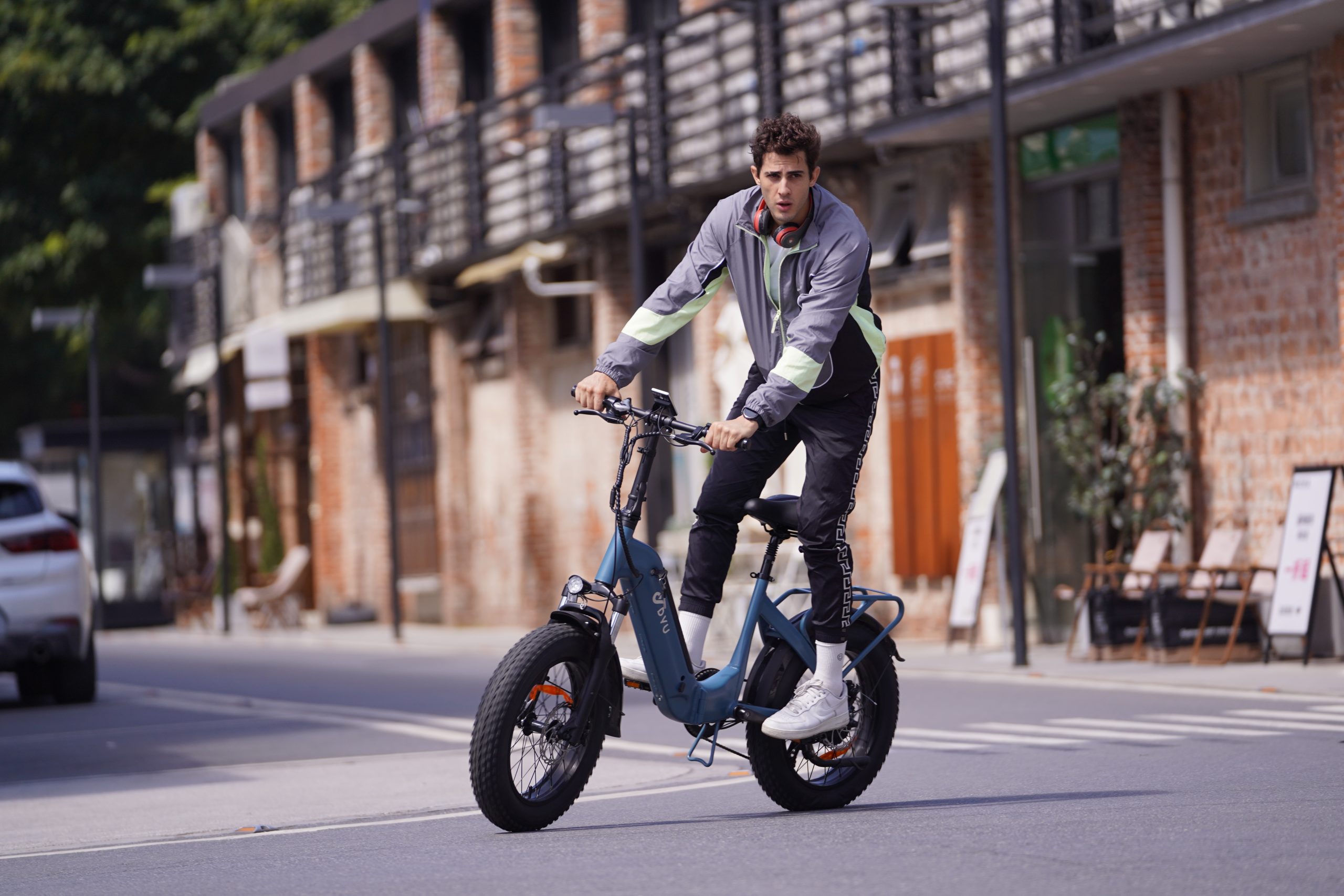

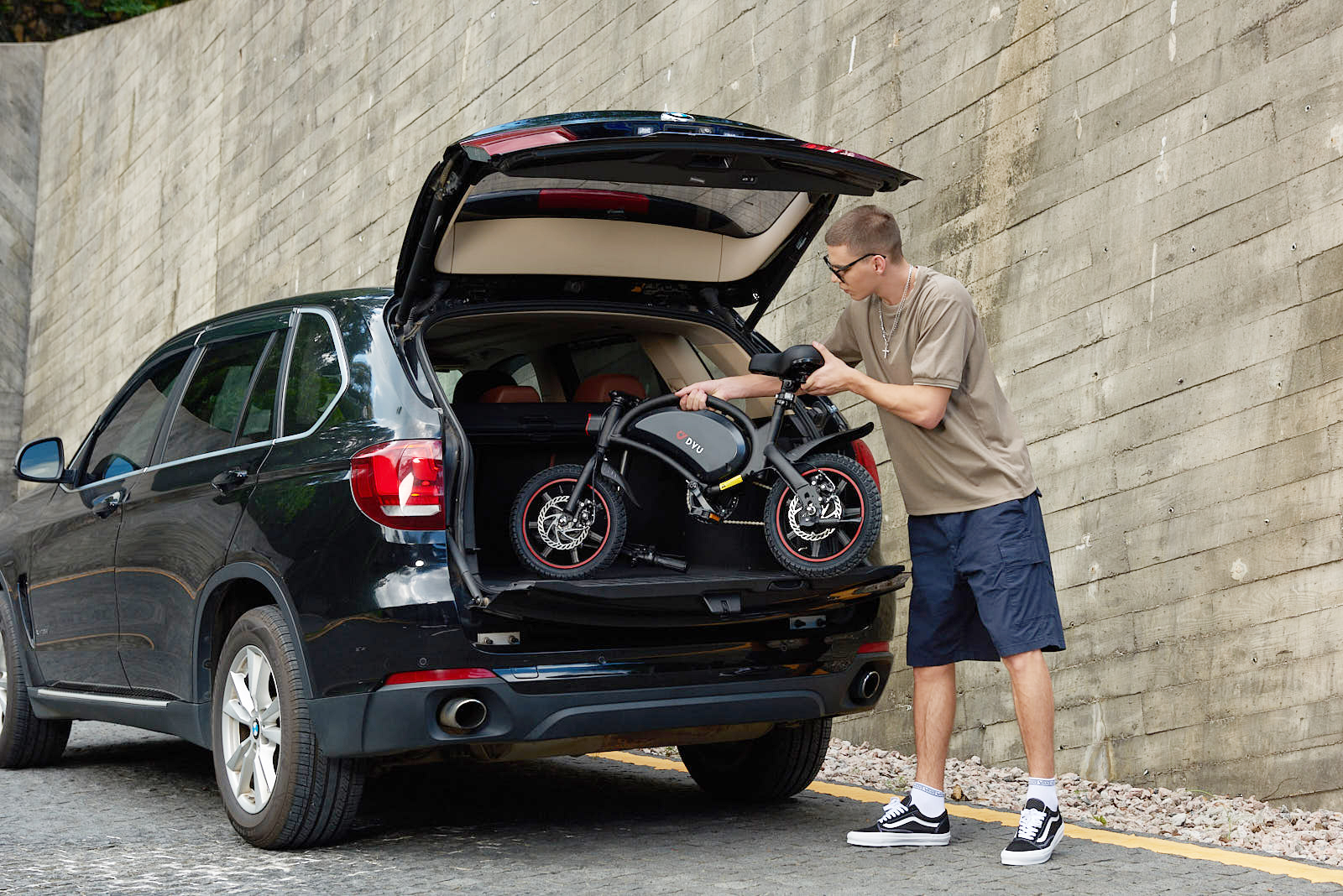
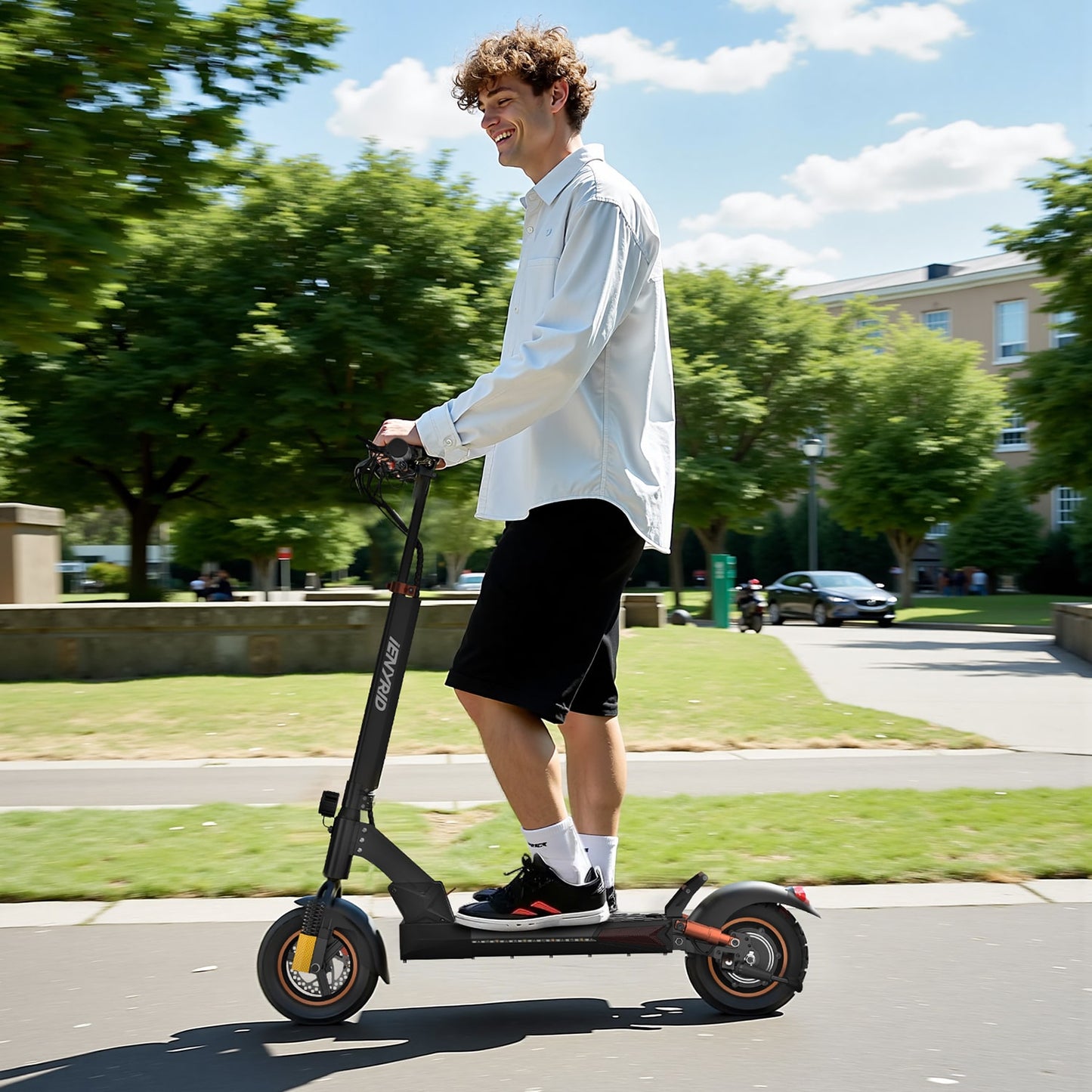
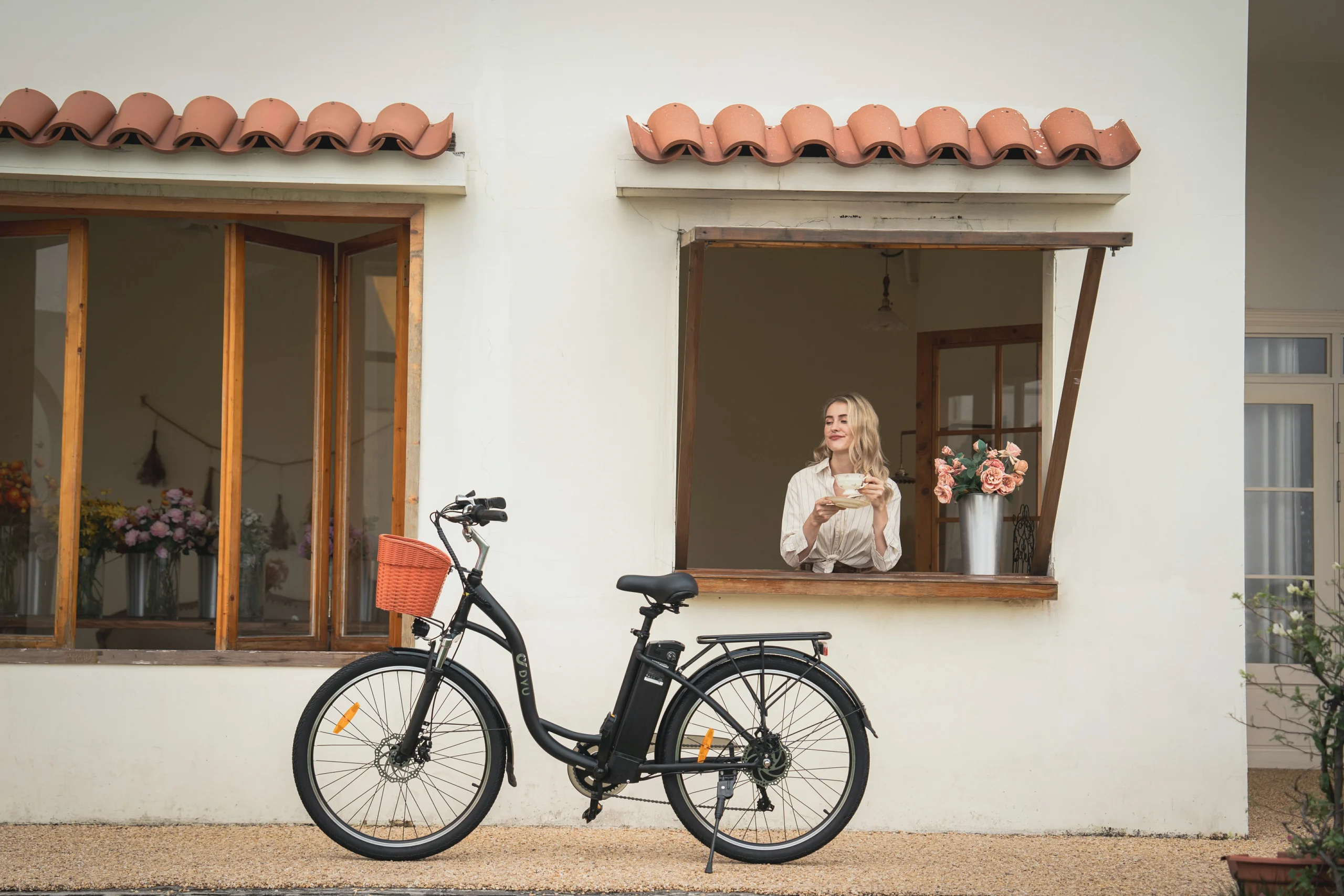

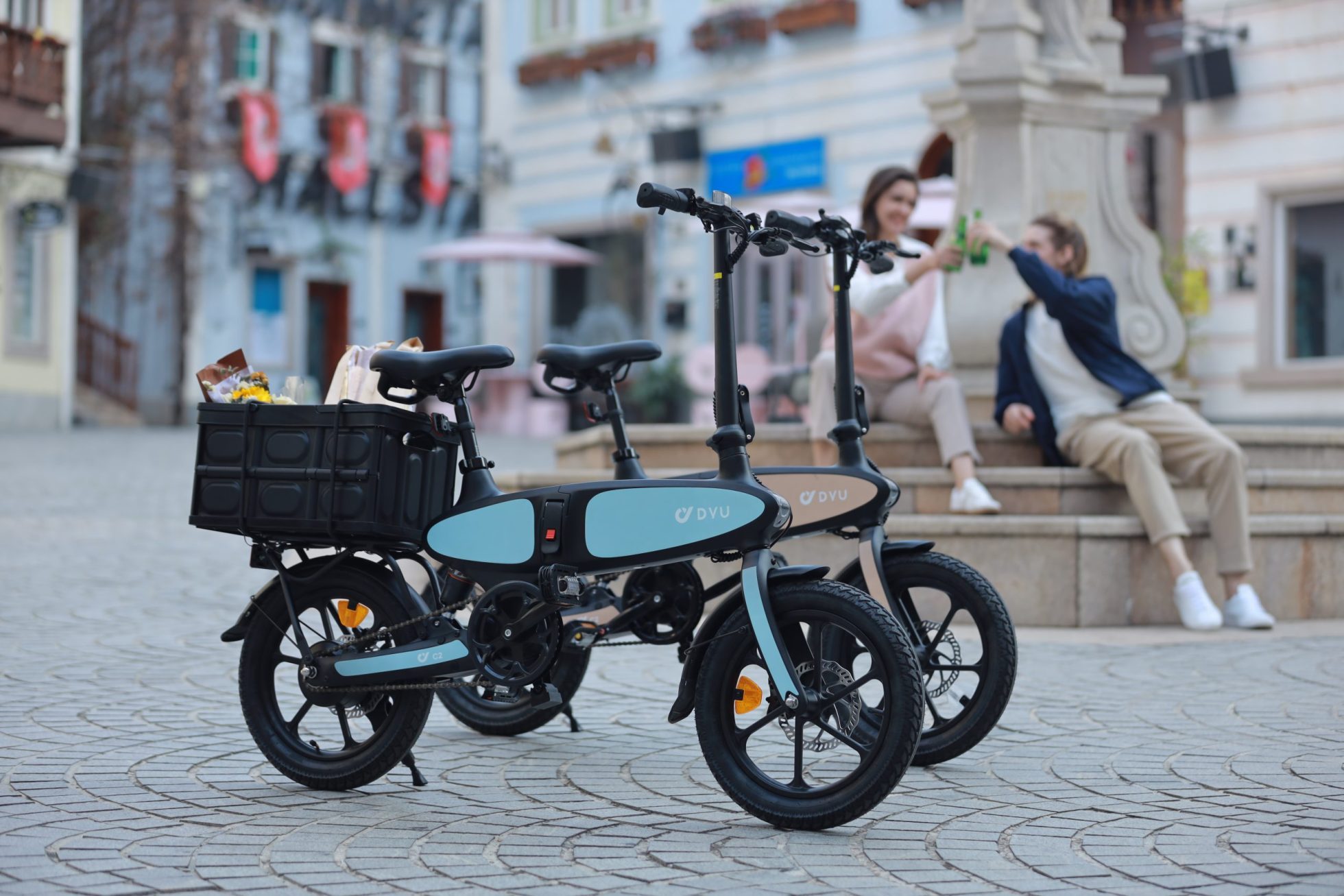
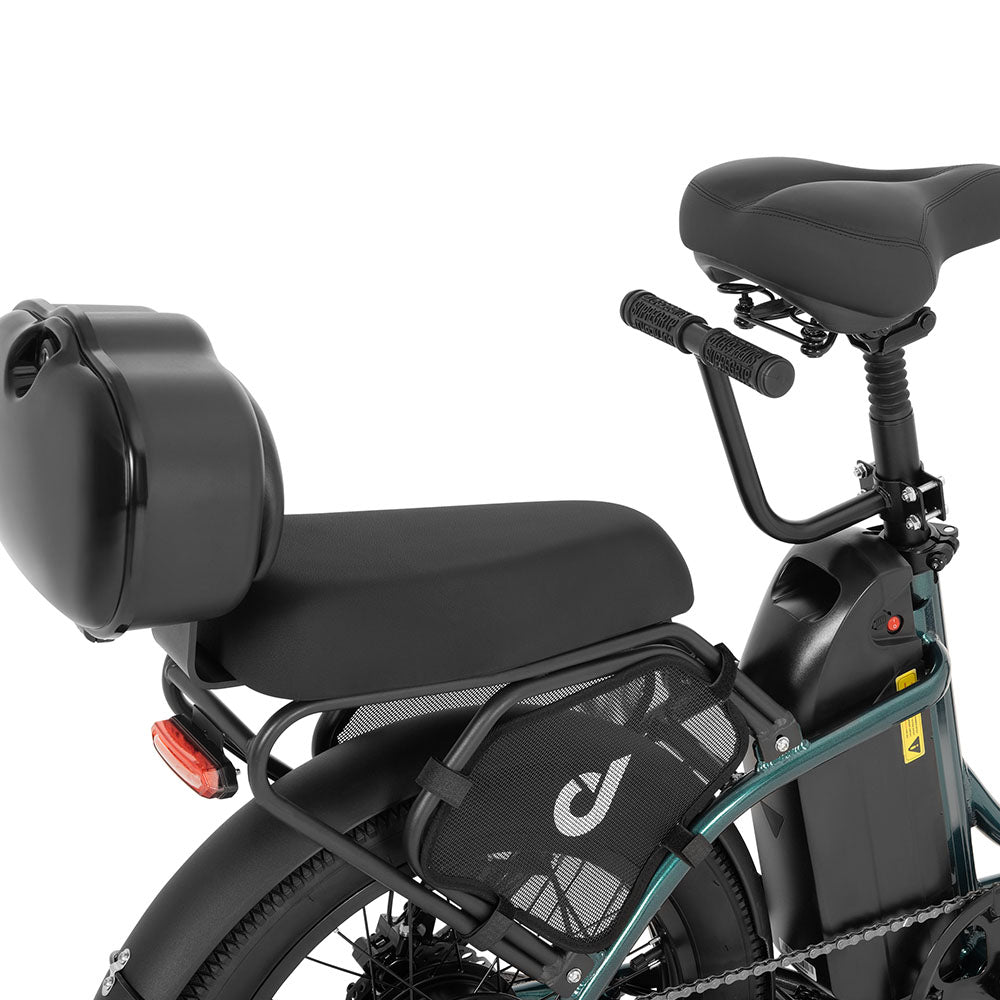
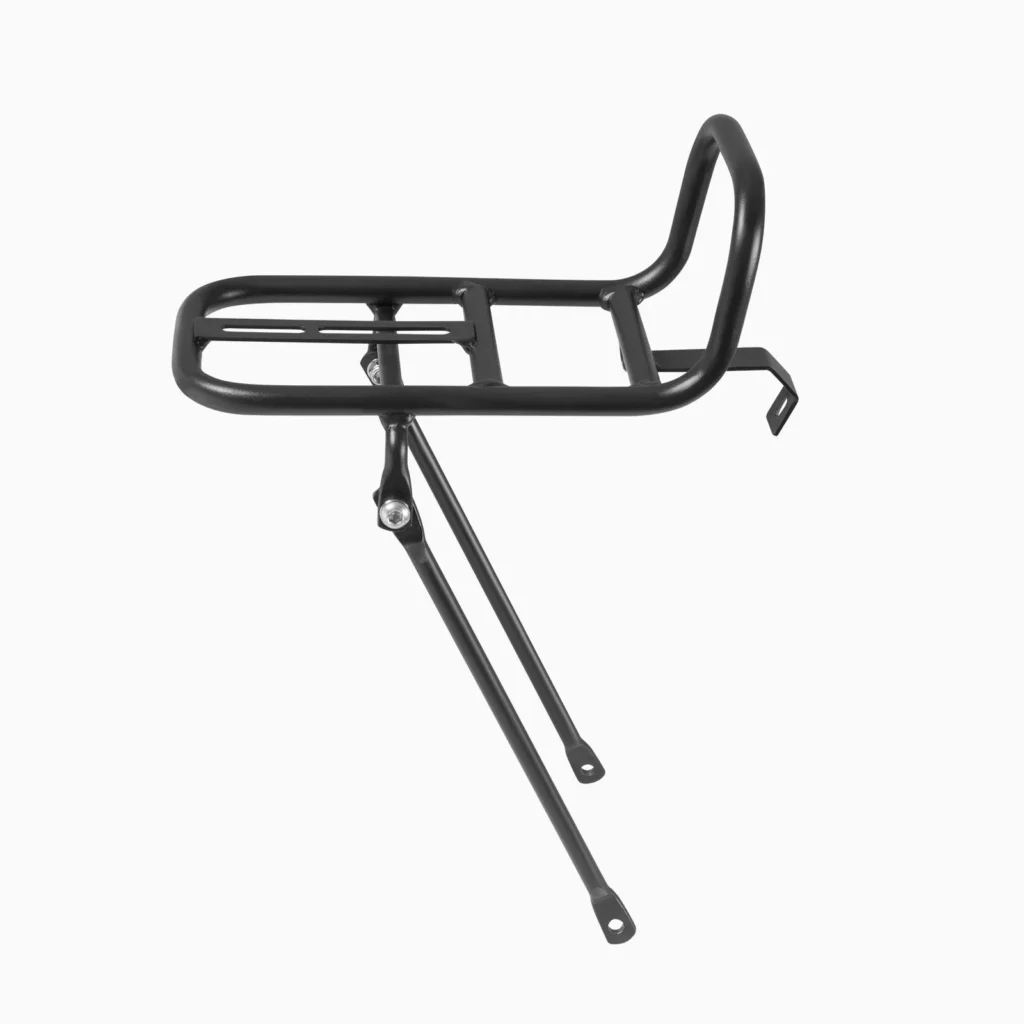
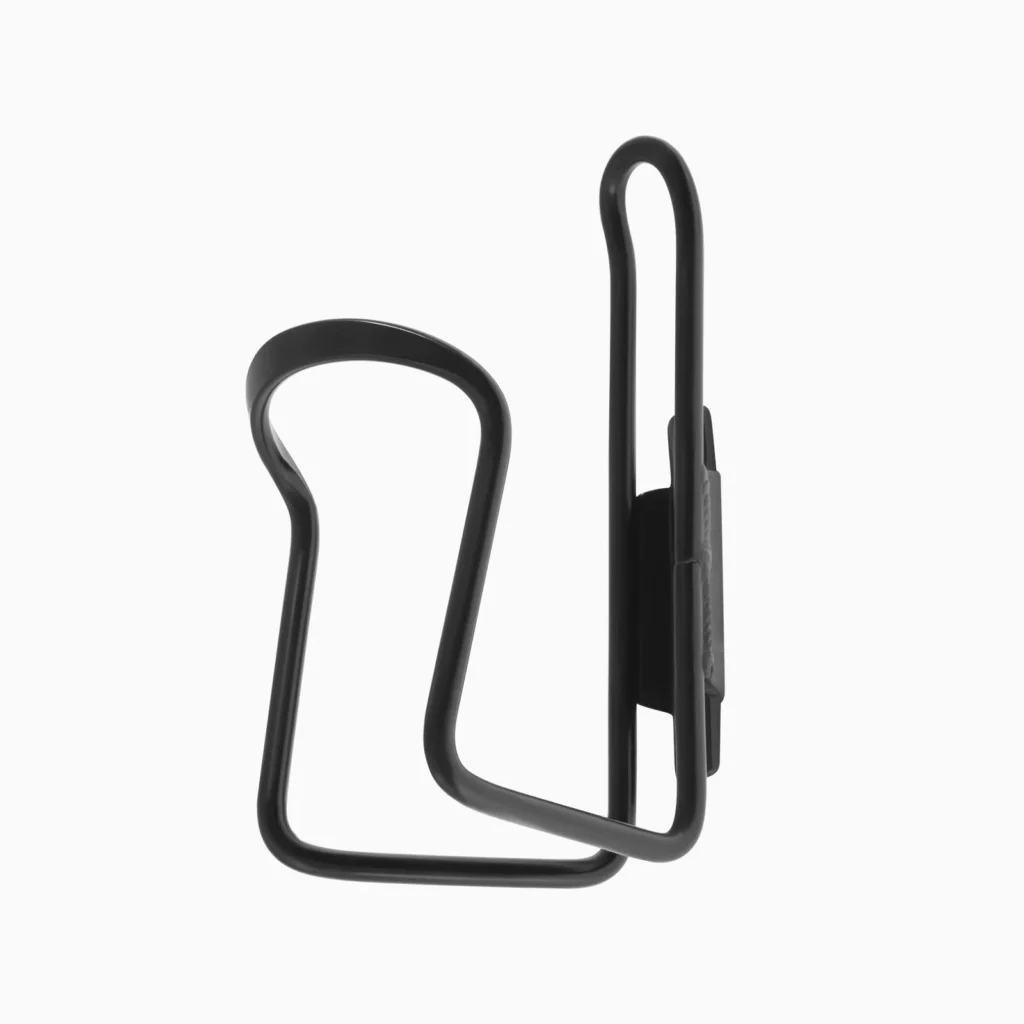
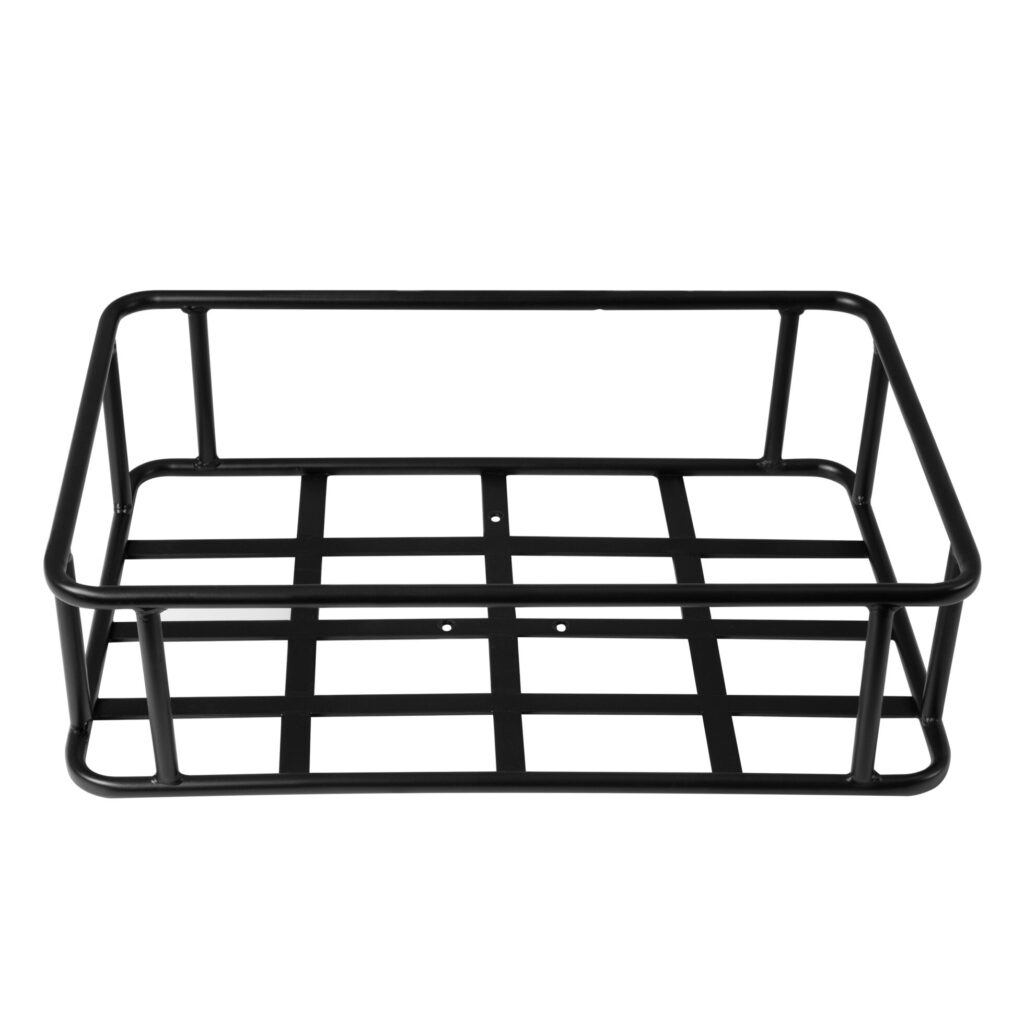
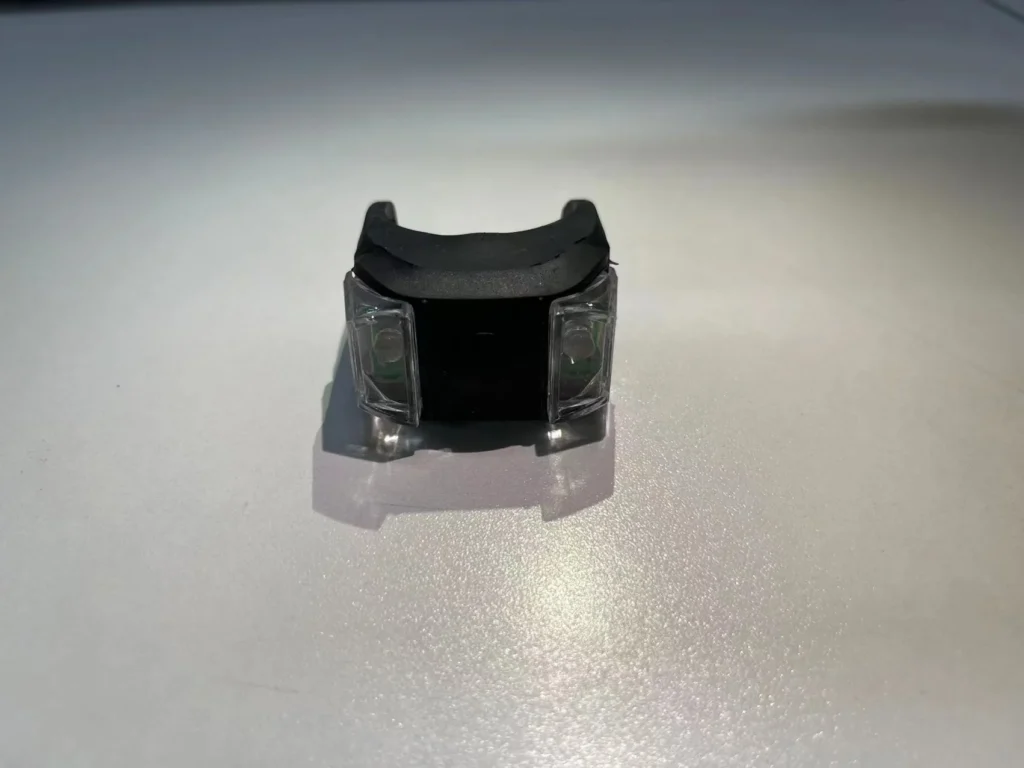
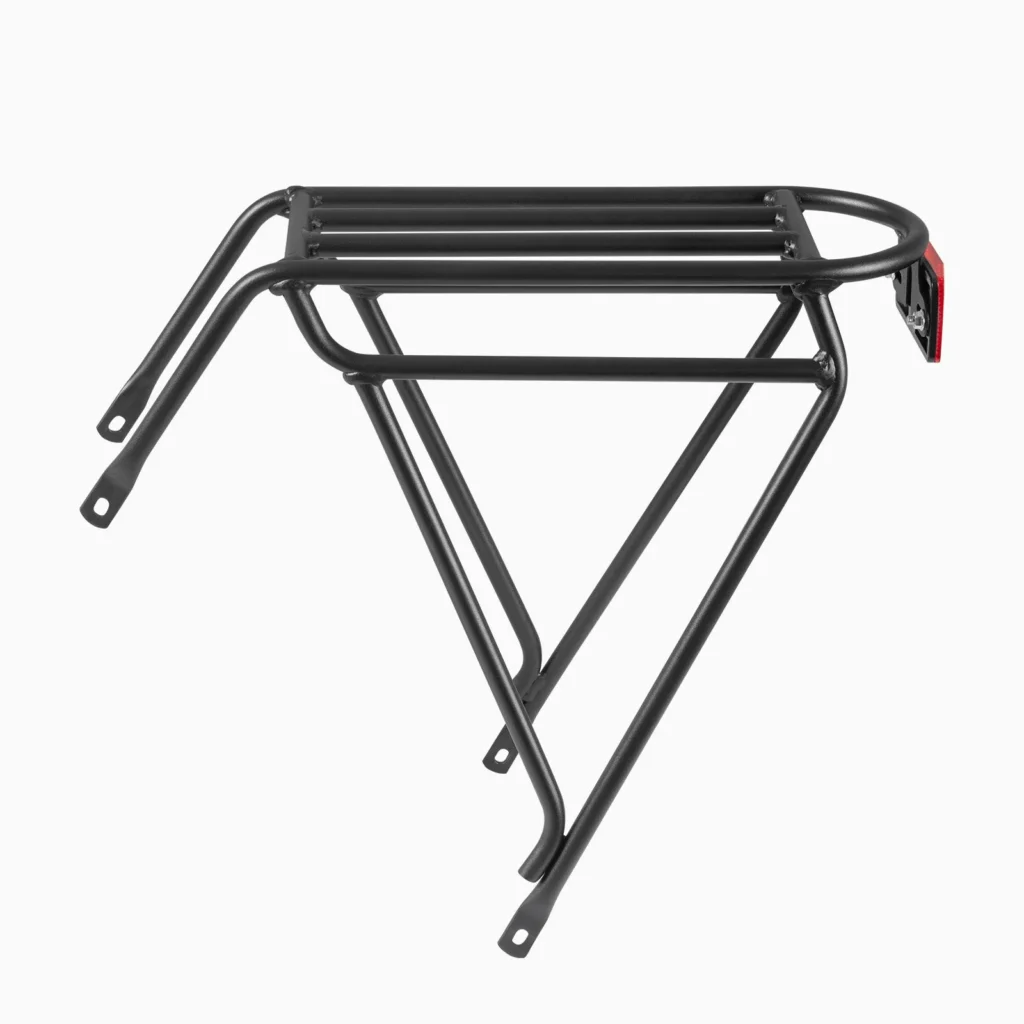
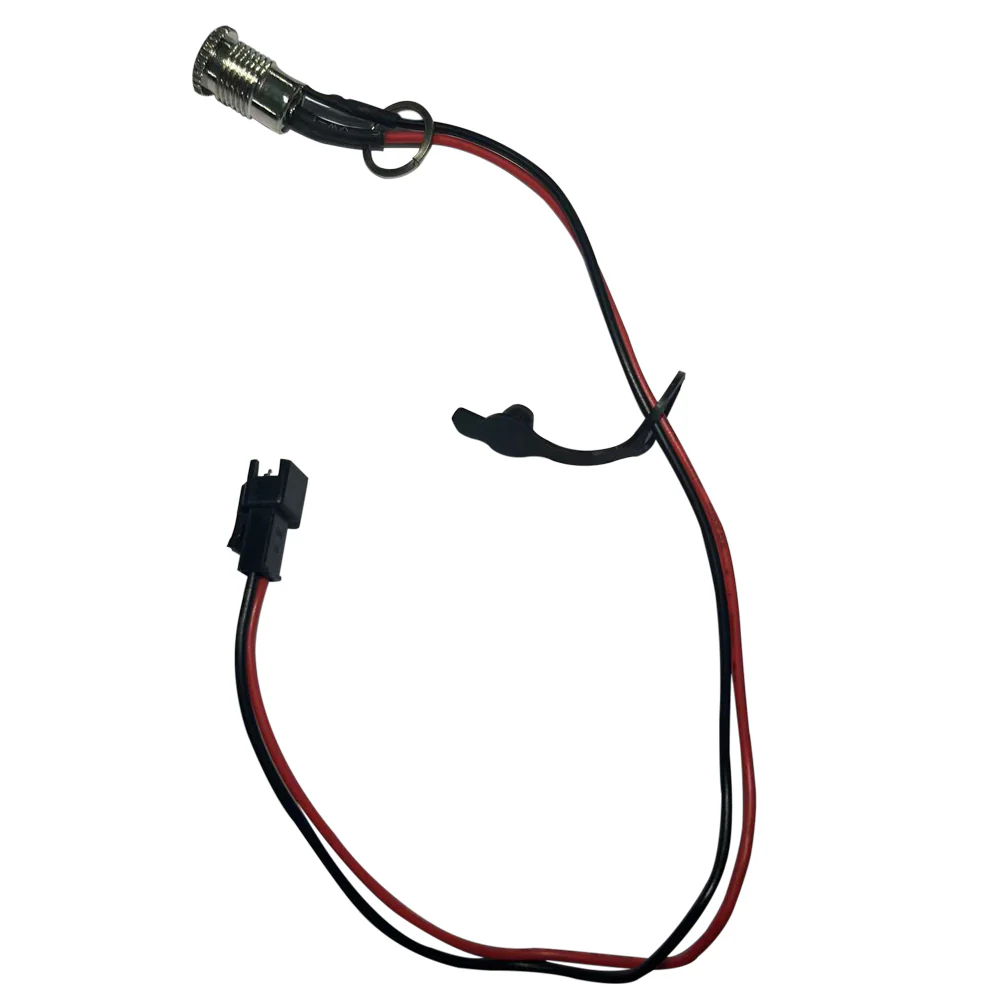
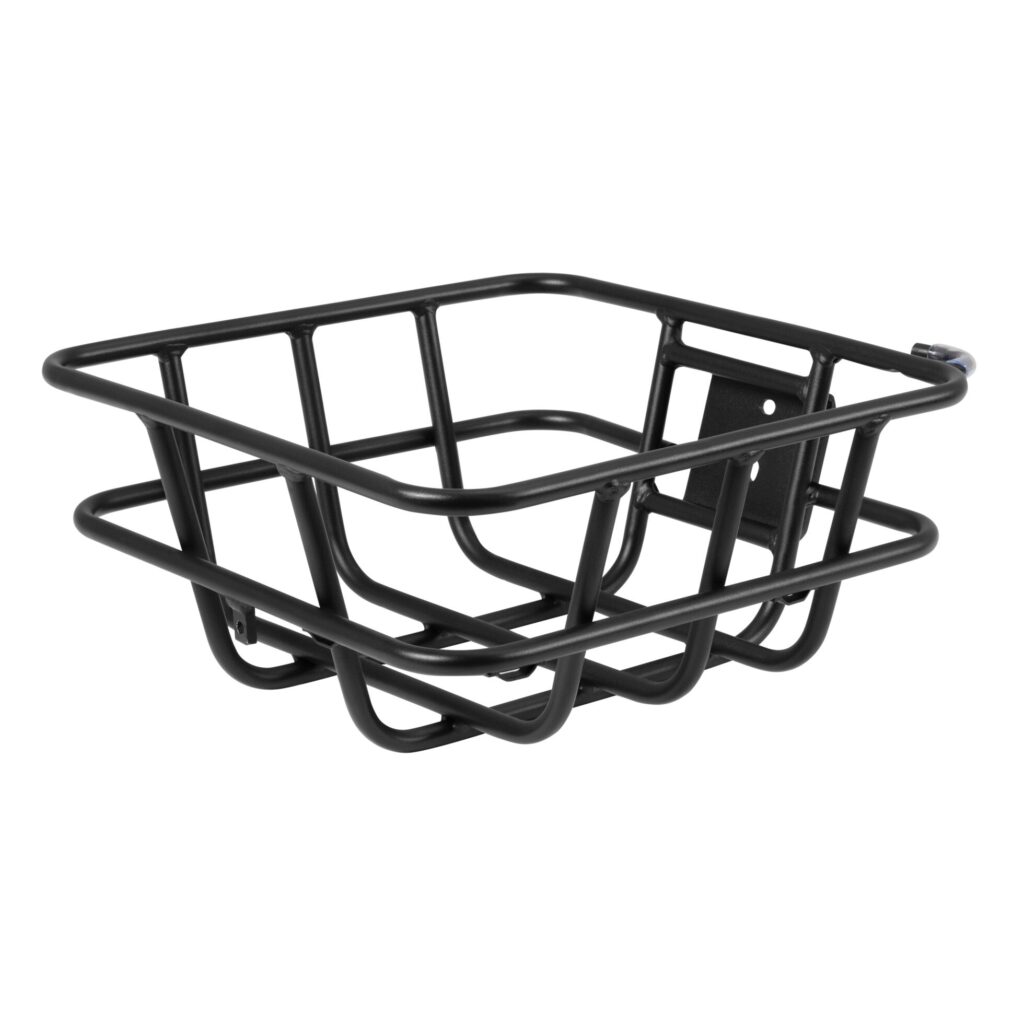

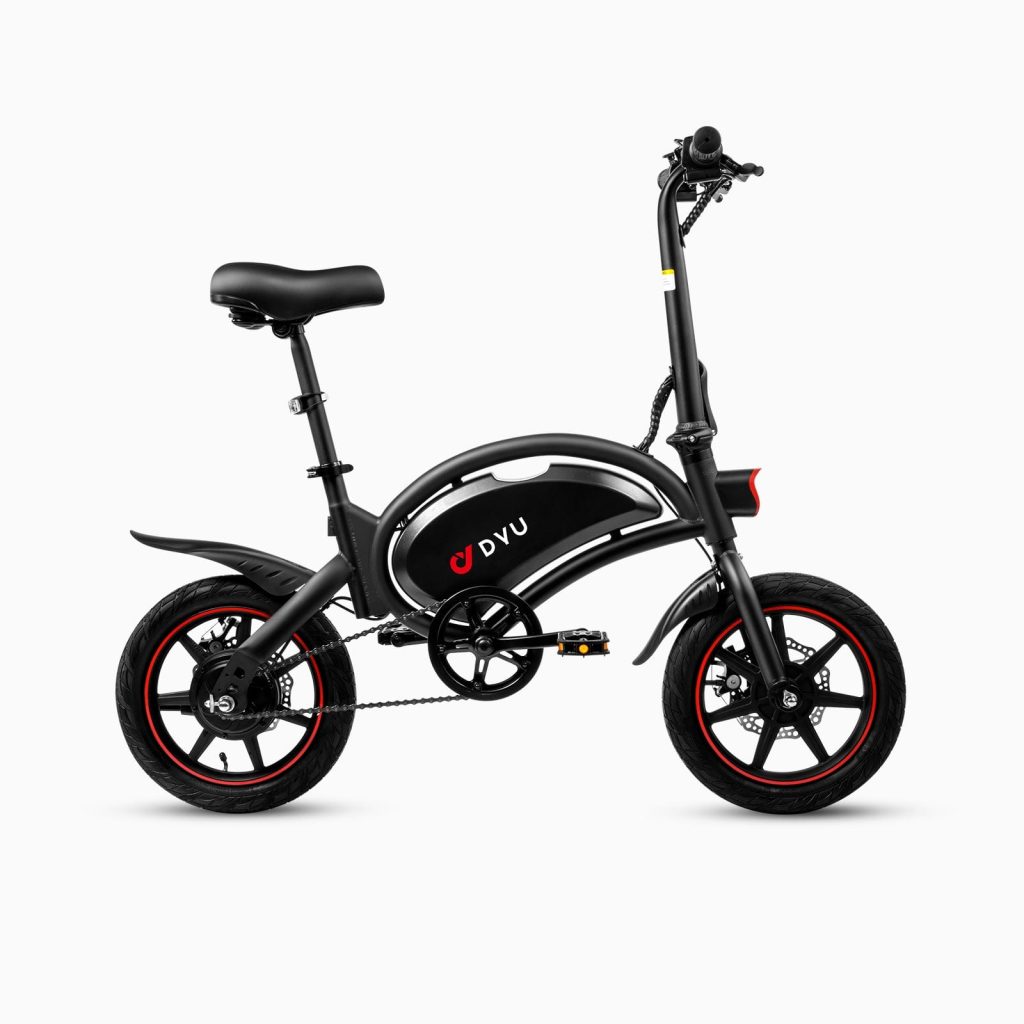
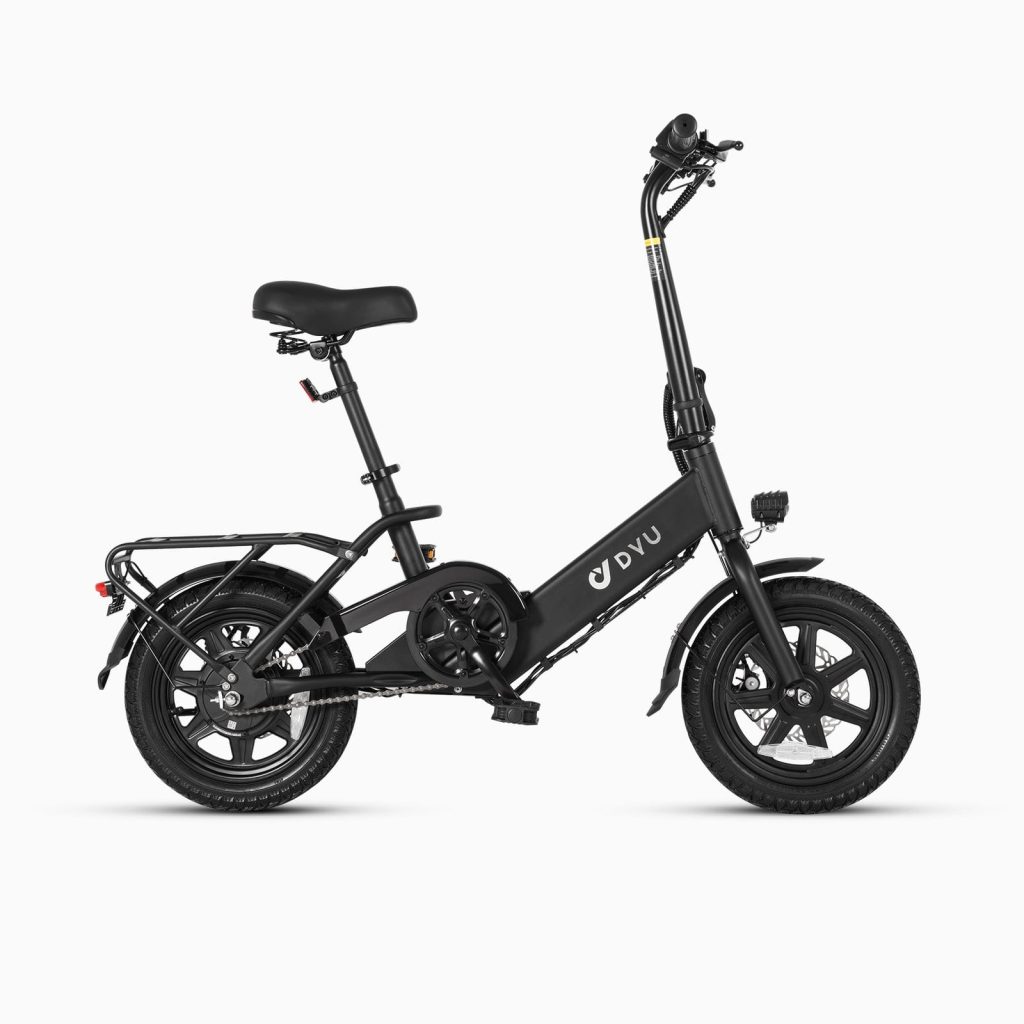
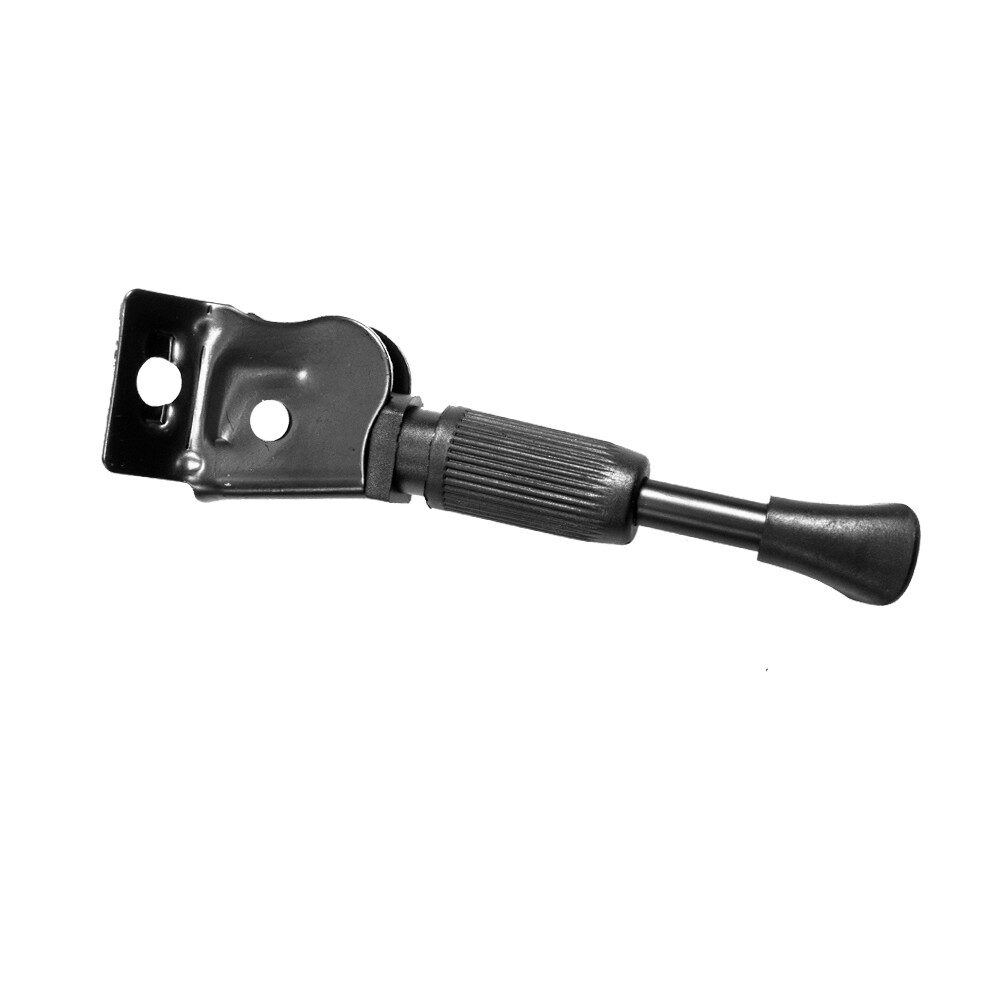
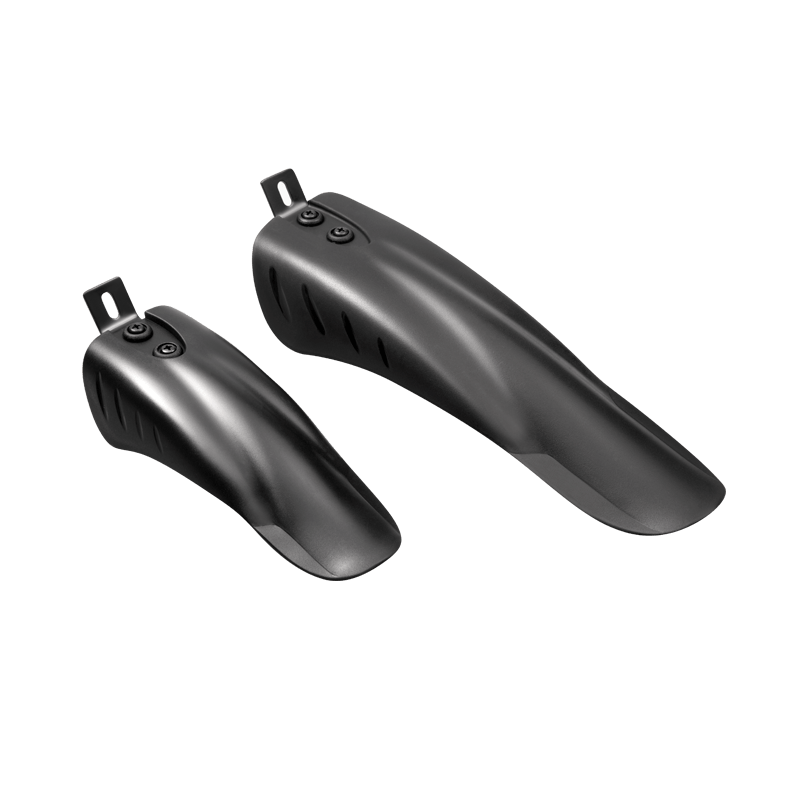



3 comments
Quentin
With the Fiido D21’s price being nearly double the C6’s in some cases, you’re really paying a premium — so you want to be sure the extra features matter to you.
Oscar
The weight difference is significant though: for later rides or hills, 27 kg on the C6 might feel heavy.
Nancy
The inclusion of practical features like the front basket and rear rack on the C6 is a strong plus for city commuting.